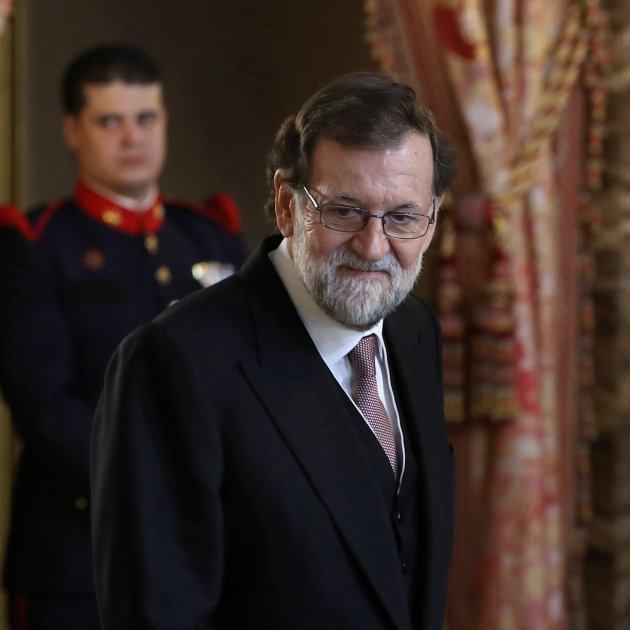"It's the end of Napoleon Bonaparte's empire of a Hundred Days", bragged Spanish government spokesperson Íñigo Méndez de Vigo about Carles Puigdemont's apparent move to Waterloo. The irony and the symbolism illustrated the feeling of victory prevailing in the Moncloa government palace after preventing his investiture as president at a distance via the Constitutional Court and once the messages emerged in which Puigdemont said that "this is over". The calm was clear, despite not knowing what Puigdemont will do, given that the Supreme Court could remove the rest of the independence movement's top leadership shortly.
"I understand that when he dictates the indictments, they will be banned from public office", said Spain's Justice minister, Rafael Catalá. And whilst the judicial steamroller makes it difficult for the authors of the independence referendum and declaration to stay around, Mariano Rajoy believes himself to be the winner, due to his endurance in the face of his rivals and their fear of legal consequences. "The rule of law has triumphed" were de Vigo's words, once the Catalan Parliament's speaker, Roger Torrent, delayed the investiture debate but before Marta Rovira gave it as a condition for any future debate that there should be no risk of criminal liability for deputies.
The involuntary desertions from pro-independence ranks had been long-noticed by Rajoy's team. To the leaving for Brussels of five members of the Catalan government was added Artur Mas's departure from PDeCAT; Carme Forcadell declining to be Parliament speaker again; Justice minister Carles Mundó leaving politics; legal statements of certain former ministers, like Joaquim Forn, and the Parliament's Board, renouncing the unilateral path to independence; the preventive detention without bail for the leader of ERC, Oriol Junqueras, and the leaders of the Catalan National Assembly and Òmnium Cultural, Jordi Sànchez and Jordi Cuixart.
As such, all eyes had been on the last leader capable on continuing the confrontation: Puigdemont. "The investiture of Mr Puigdemont is illegitimate", said deputy prime minister Soraya Sánez de Santamaría about a "fugitive from justice". "There's a clear distortion between what he says publicly and what he believes or thinks", said de Vigo about the controversial messages which, despite everything, the Spanish government doesn't see as a guarantee that the Catalan leader will in the end step aside.
The Spanish executive is already urging Torrent to start a new round of discussions with the different parties to find an "alternative" candidate, who can end with the "discord" and recover "the path of dialogue and of consensus", according to Santamaría, so that article 155 can be lifted. The government has hinted at their rejection of Junqueras in search of a "clean" candidate "free of legal proceedings" to turn over a new leaf. Nor are they keen on a symbolic Puigdemont presidency, with an executive president in Catalonia, because it keeps him on the floor. "The only recognition the government believes Puigdemont should have is from a court," said de Vigo. For the government spokesperson, the idea of two presidents "bears no resemblance to reality".
In this context, the trials of the pro-independence leaders are expected in the autumn, although they could be banned from public office in March. This emerged the press, to the indignation of ERC, who criticised Catalá for "supporting" the theory because it could be "against the separation of powers and presumed judicial independence" for a minister to be aware of any such plans. The minister responded that he had made the inference from two judicial orders in which the judge reflected on the applicable statutes, given that sedition, rebellion and misuse of public funds are serious crimes.
However, the calm Rajoy is waiting for will be disturbed by the pressure from PSOE to suffocate the spirits of the more than two million pro-independence voters, even once the process's top leadership is out of the way. That was demanded by the party's secretary general, Pedro Sánchez, this Tuesday. He called again for a "political response" to the Catalan crisis, after his full support for the application of article 155. The call came after PP stalled a reform to the Spanish Constitution, which seems ever less likely of meeting with success in the Congress.
